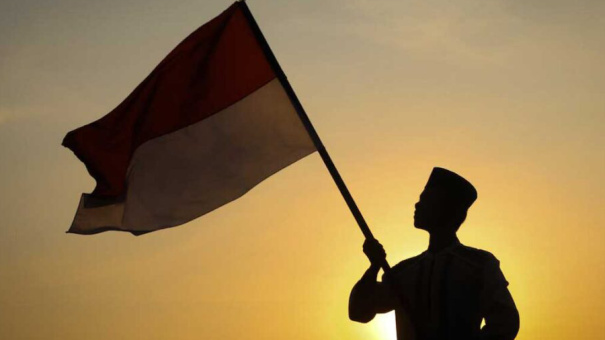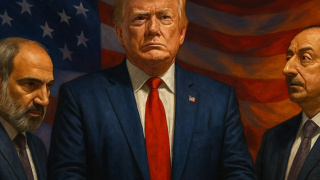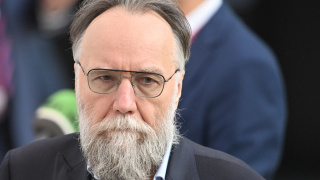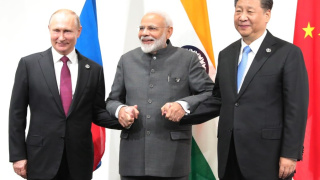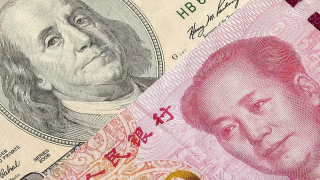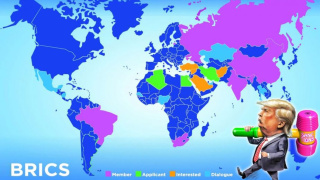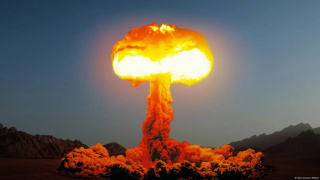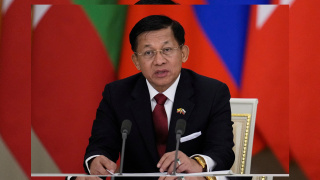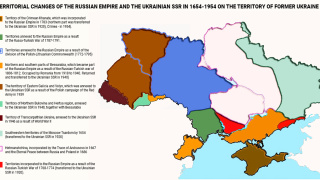How Indonesia’s bold leadership is fuelling rise of a multipolar world
Indonesia’s President Prabowo Subianto is fast emerging as a leader who thinks big, bold, and out-of-the box.
Within months of assuming the Indonesian Presidency, Prabowo, a former special forces military officer, has shown his capacity to reimagine his country’s destiny. No longer confined to accepting Indonesia’s status as a middle power, whose focus is essentially the Association of South East Asian Nations (ASEAN)—a 10-nation regional bloc—Prabowo has made it plain that he wants his country to make an impact on the global stage.
The blue-blooded president, who was the son-in-law of former Indonesian President Suharto, soon after assuming office, made it apparent that he wished to align Indonesia’s future with his freshly minted global vision.
“Under President Prabowo's leadership, Indonesia will position itself on the world stage, in accordance with its dignity as a great nation, and as a trusted partner and good neighbour,” said erudite foreign minister Sugiono at an omnibus press conference soon after Prabowo became President.
Revealing Indonesia’s intent to pursue a pro-active foreign policy, Sugiono stressed that “our diplomacy must not only be responsive to the crisis, but must also be anticipatory, progressive and visionary.”
It is evident that global engagement will be the hallmark of the Prabowo presidency.
At an institutional level, the Indonesia President has moved the right pieces to ensure assured fire power to Indonesia’s foreign policy.
Sugiono, the new Foreign Minister, is no green horn within Prabowo’s inner circle. In fact, he commands impressive cerebral power as well as the President’s complete confidence.
Indonesia’s top diplomat who belongs to Aceh province, has an unenviable academic record. He cut his teeth in computer engineering after earning a bachelor’s degree from Norwich University in Vermont in the United States. He then went on to pluck a master’s degree in Management and Business from the University of Konstanz, Germany. Within Prabowo’s Gerindra Party, Sugiono is known as the President’s ideological protégé. He is well-regarded for his sharp intellect, decisive disposition, as well a capacity for deep strategic thinking.
Sugiono, in turn, is assisted by three talented deputy foreign ministers, who are reputed for their domain specialisation.
Out of them Arrmanatha Nasir, also called Tata by his close friends, currently serves as Indonesia’s Ambassador to the UN. A veteran diplomat, he has been previously posted in France, Andorra, Monaco, and the UNESCO.
Anis Matta—another gem hived out by Prabowo--is known for his deep understanding of the Islamic world. "I have been entrusted by pak Prabowo to serve as Deputy Foreign Minister, with a probable focus on the Islamic world," he has been quoted as saying.
Finally, Arif Havas Oegroseno completes the trio that is expected to knock on the global stage following Prabowo’s instructions channelled through Sugiono. Currently serving as Indonesia’s Ambassador to Germany, Arif specialises in maritime affairs—an expertise that will come in handy as Indonesia negotiates with a fresh mind on its maritime dispute in the South China Sea with China, and much more, given Indonesia’s unique strategic location in the maritime domain.
As the world's largest archipelagic state, Indonesia is home to several important straits that are part of key international maritime trade routes. Some of the major straits passing through Indonesian waters include the Malacca Strait – one of the busiest shipping lanes in the world, connecting the Indian Ocean with the Pacific Ocean. Besides, among several others, Indonesia hosts the Sunda Strait – a channel that separates Java from Sumatra as well as the Lombok Strait, which can serve as alternative to the Malacca Strait.
In tune with its past, when Indonesia was one of the top leaders of the non-aligned movement, Prabowo has already flagged an independent and active foreign policy as the template for his country’s external engagements.
Quick to grasp that the world was rapidly spinning away from unipolarity to a multipolar situation, Prabowo aggressively courted for a membership of the BRICS-- a rapidly expanding grouping of emerging economies and the Global South.
“As a member of BRICS, Indonesia will ensure to bridge the interests of developing countries and the Indo-Pacific region, and will continue to actively prevent the escalation of geoeconomic and geopolitical competition,” explained Sugiono during his press engagement.
Demonstrating his grasp for an emerging multipolar world order, Prabowo has been aspiring for BRICS membership for a long time. "Actually, I already announced in 2014, when I started my attempts at running for president of Indonesia … I did announce that when I become president of Indonesia, I will bring Indonesia to join BRICS," Prabowo said last November at a business forum in Brazil.
The Indonesian President’s enthusiasm for BRICS is transparent. “I was installed on Oct. 20, and [established] my cabinet [a day later]. … I [immediately] sent my foreign minister [Sugiono] to the BRICS’ Kazan summit]. We want to join Brazil and the other BRICS countries. We think that this will be a significant new element in the new global economy,” Prabowo was quoted as saying.
Indonesia visualises several benefits for itself by joining BRICS.
First, it sees BRICS as a first-rate gateway to reach out to rising emerging economies and the Global South. This axis will hedge Indonesia’s over reliance on the West and western financial institutions. Interestingly, Indonesia has already joined the Shanghai based New Development Bank of BRICS countries, and is looking at this institution as a source of domestic project finance. For Indonesia, NDB is an interesting option because it is not ideologically driven to leverage human rights and democracy as templates that determine lending. That sits well with Prabowo who has in the past been accused of committing human rights violations during his military career.
Second, from a geo-economic perspective, joining BRICS opens the door for conversations that could advance Jakarta’s goals of food security, energy independence, poverty alleviation, and human capital development.
Third, by joining BRICS, Indonesia can participate in discussions on defining rules that could anchor a new global economic order within the ambit of an emerging multipolar world.
Finally, it is important to understand that BRICS is a work in progress. By participating in this group, Indonesia can become a leading player in shaping its architecture and evolving role, potentially bolstering its international status.
In tune with its global vision and aspirations, Indonesia has jumped into the fray to help solve major and complex international conflicts.
The Gaza war is a case in point. Prabowo has been quick of the blocks to make Indonesia’s voice heard across the globe on the plight of ordinary Palestinians, along with a proposal to bring this tragic conflict to an end.
The Indonesian President has announced that as a humanitarian gesture, his country was ready to evacuate and shelter on a temporary basis, those Palestinians who have been injured, traumatized, or orphaned. The plan envisages evacuation of around 1,000 victims to Indonesia, where they can recover, till the time they are safe to return to Gaza.
The latest initiative follows, Indonesia’s despatch of medical teams and setting up of field hospitals jointly with the UAE to assist Palestinians
However, Prabowo’s plan has not gone down well in the region, where it has been perceived as support for ethnic cleansing of Gaza under the cover of humanitarianism. For instance, an article Iran’s English language Press TV has slammed the initiative, pointing out that “evacuating wounded Palestinians appears to be a kind gesture until we recognize that it could, unintentionally, support a much darker agenda: the long-running effort by the settler-colonial Israeli regime and its allies to ethnically cleanse and depopulate Gaza.”
Nevertheless, Indonesia has coupled its humanitarian diplomacy with an appeal to all parties involved in the conflict to observe international law. Consequently, Jakarta has welcomed the legal edict of the International Court of Justice, and called for Israel's accountability before international law.
As a political option, Indonesia has also reaffirmed that there is no alternative to the two-state solution to end the conflict, preceded by a ceasefire. Besides, it has offered to send UN peacekeepers, based on a go-ahead by the United Nations Security Council.
To amplify his country’s pitch, Prabowo had recently embarked on a whirlwind tour of the Middle East, with stopovers in the United Arab Emirates (UAE), Turkey, Egypt, Qatar and Jordan.
Apart from keeping the Gaza crisis in the limelight, the Indonesians have also carved out significant bilateral benefits during the President’s Middle Eastern outing. For instance, in Qatar, both countries have pledged a joint investment of $4 billion, with equal contribution by each side. The fund would be channelled into key sectors including food security, energy security, downstream processing, digital infrastructure, healthcare, and tourism.
Apart from Palestine, Prabowo has also been vocal about ending the Ukraine conflict, signalling once again his aspirations to position himself on the global stage. In a conversation with Volodymir Zelensky on the sidelines in Singapore of the Shangrila dialogue in 2024 ahead of a peace conference in Switzerland that Kiev had proposed, Prabowo found fault with Ukraine’s decision to exclude Russia from the conclave. "Many countries feel that in a peace summit all elements must be present, especially Russia," he told Zelensky. Prabowo also offered Indonesia’s good offices to end the conflict.
Persisiting with his role in finding solutions to world problems, the Indonesian President has called for UN reforms including the expansion of the Security Council, especially advocating India, and Brazil’s presence on this platform. "Now, there are demands that the security council's permanent members should be increased to represent the reality of this present world," he stressed at the Anatalya Diplomacy Forum (ADF) during his recent visit to Türkiye. The president spotlighted those countries, such as India and Brazil, with big populations and roles, are underrepresented in top UN organs.
Despite his appeal for global institutional reform, Prabowo has made it explicit that sovereign nation states should be the fulcrum of international relations—a position that sits well with key advocates of multipolarity.
Wrapping up his 360-degree worldview, Prabowo has strongly advocated the ASEAN spirit to resolve global conflicts. During his address at the ADF, he also pointed out that 50 years ago, Southeast Asia was embroiled in conflicts. "Lo and behold, 50 years, no conflict. We still have differences, but we tend to use diplomacy, we tend to talk. Better to talk than fight," he affirmed.
Prabowo said that leaders in the ASEAN and Asia regions prioritize diplomacy, even if it means lengthy, tedious talks.
"We tend to think of the common interests. This is my philosophy also. I want to bring Indonesia to a position of good relations with all the big powers," he observed.
Given Prabowo’s natural instinct to play independently on the global stage, he is well endowed to further energise the multipolar world. His role can be particularly beneficial in consolidating the Islamic pole of a multipolar world, given Indonesia’s syncretic tradition, which has allowed the world’s biggest Islamic nation to peacefully and beneficially co-exist with Hindus, Buddhists and Christians that have been peacefully living together in Indonesia for centuries.
